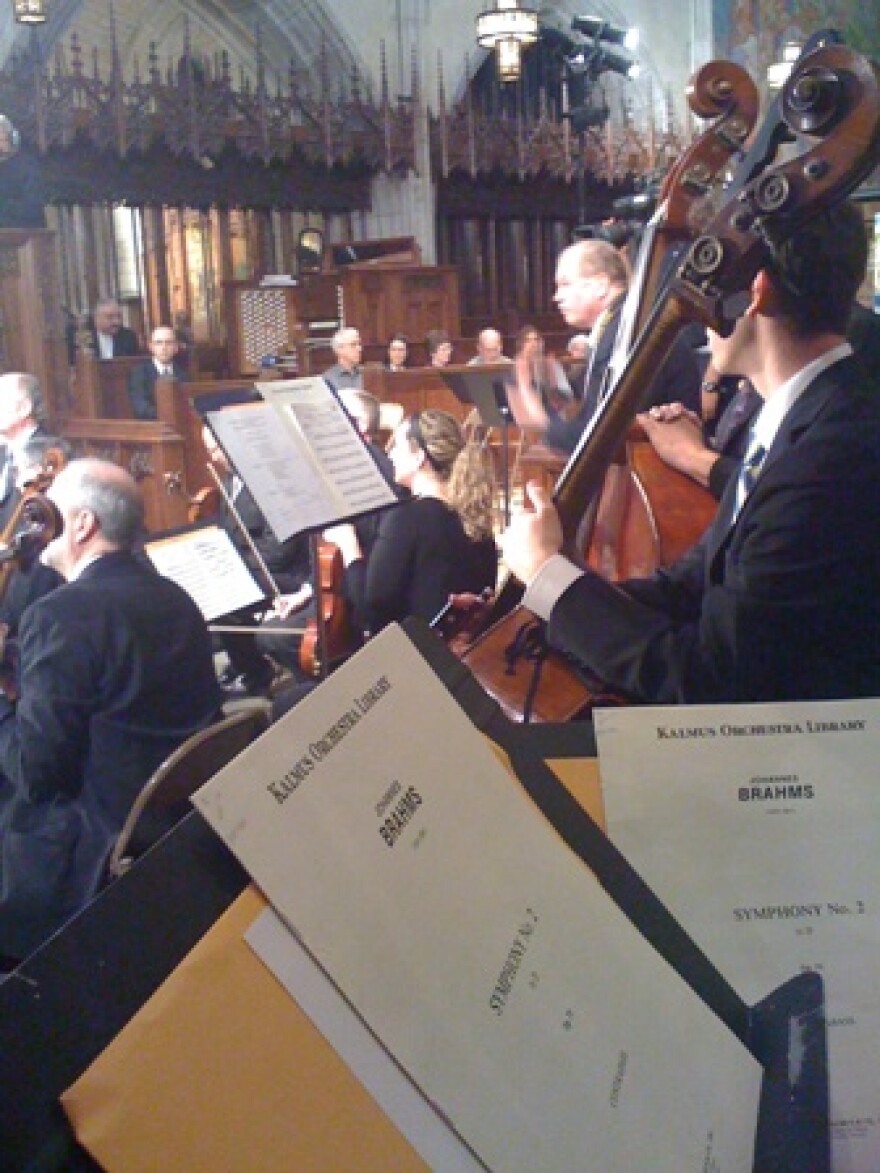There’s a big fight going on at Orchestra Hall. The Detroit Symphony Orchestra musicians have been on strike for nearly a month, and they say management's proposed cuts are unreasonable. Haden McKay, a DSO cellist, calls it "the most extreme attack that’s ever been made on an orchestra in the United States."
The DSO is one of the top ten orchestras in the country, but it's saddled with a multi-million budget deficit. Both sides agree that cuts need to be made, but that's about all they agree on. Here's where things stand:
- Musicians proposed a 22% pay cut that would gradually be restored.
Management rejected that and imposed a new contract called Proposal B. Here are the key points to that proposal, according to the official website for the Detroit Symphony Musicians:
- Reduce annual wages for current members by 33% in the first year, with minimal increases in subsequent years.
- Reduce the complement of the orchestra from 96 to 85 musicians
- Freeze the orchestra's current pension plans.
- Make sharp reductions in health care coverage.
- Institute a three-tier wage scale with significantly lower pay rates for substitute musicians and newly hired members of the orchestra
Gloria Heppner is a DSO board member and even she doesn’t think management’s proposal is viable if the goal is to maintain a top tier orchestra.
"We’re fighting for the maintenance of a first class orchestra," says Heppner. "We could have a community orchestra, but that, believe me, is not what this is about."
So how did things get so bad at the DSO?
Mark Clague, a music professor at the University of Michigan, says there are a few factors at play. The DSO cut its development staff way down in order to save money, which meant fewer people raising money for the orchestra. The DSO also built a $60 million addition to Orchestra Hall and used the interest on its endowment to pay the mortgage. But the endowment took a huge hit in the recession, so Clague says "to pay off the mortgage interest, you now have to cut into the principal of the endowment."
A columnist at the Detroit News has asked if Detroit can even afford a symphony orchestra anymore:
"It’s not too radical to say we’re past the economic point of asking whether Detroit as it’s traditionally defined can afford a world-class orchestra. Absent the emergence of a gullible Sugar Daddy willing to fund the DSO’s broken business model, the more salient question is whether Michigan can afford one — and whether it might be willing to support it. Unpopular? Sure. But it’s recognition of the economic reality pressuring the DSO now and well into the future."
Sugar Daddy, Angel Donor...whatever you call it, the idea isn't totally out of the realm of possibility. An angel donor swept in at the last minute and donated $85 million to the Cincinnati Symphony Orchestra in 2009.
All DSO orchestra concerts have been cancelled through November 7, 2010.
You can hear an audio version of this story here.



